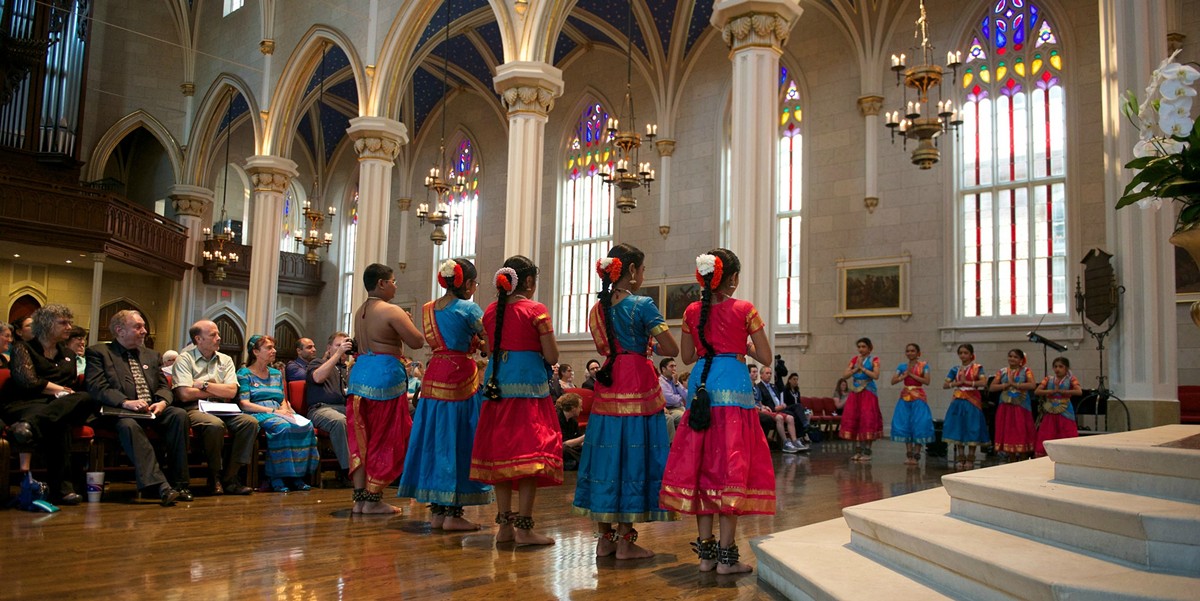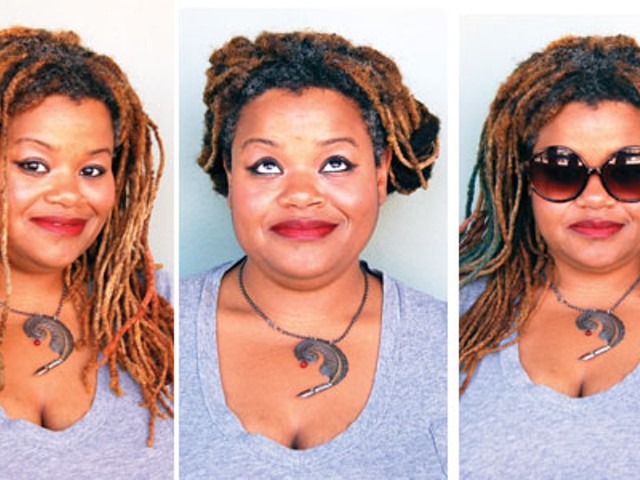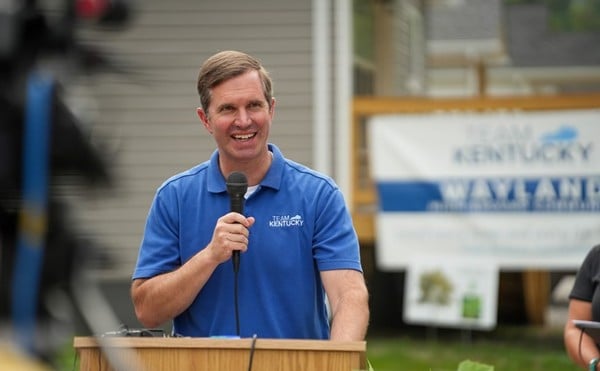For the past 20 years spiritual leaders and practitioners from around the world have made a pilgrimage to Louisville for the Festival of Faiths, described by some as the “Sundance of Sacred.” LEO talked to Mustafa Gouverneur, the director of communications at the Center for Interfaith Relations, to learn what makes this event so unique.
LEO: What is the mission or the goals of the Festival of Faiths?
Mustafa Gouverneur: The Festival of Faiths is five days of music, spoken word poetry, film, theater and photography and dialogue with internationally renowned spiritual leaders, teachers and practitioners. And what we're trying to do is provide a platform for a conversation on meaning from all perspectives, which includes all of the different spiritual faith traditions, but also those with no faith tradition at all. We want people to come and dialogue on quite a serious and deep level. And we have been doing that for 20 years now with an incredible pedigree of scholars and guests — people like the Dalai Lama, Sam Houston, Richard Ward, Wendell Berry, Aaron Armstrong, Muhammad Ali and Matthieu Ricard — huge names in the world of ideas, philosophy and spirituality because there is a lot of noise out there … a lot of superficiality with religion and people who are very loud and talk a lot about religion. But we gather people from the depths of their different traditions to speak on a deeper level about their own spiritual wisdom and their own spiritual principles, to articulate responses to the contemporary issues of today — profound questions on the human condition, but also questions on modernity and living in a postmodernist world. All of these questions are important in this time of crisis: crisis of meaning, crisis of the environmental, crisis on many levels, arguably. And these aren't conversations that happen very often, and especially on so many platforms. So we are trying to provide a platform for many different perspectives to speak from their traditions on these issues.
LEO: The festival is a celebration of all faiths and traditions, not just one particular sect?
MG: This is about engaging with someone from another tradition, and learning their viewpoints and way of seeing the world, without sacrificing one iota of your own theology or your own belief system. But you can still engage sincerely and deeply with one another and be enriched by that encounter. That’s what this really is, without any sentimentality because in today's world we are really faced with so many different traditions, and there is so much to benefit from these traditions and so much in common.
LEO: I understand each year has a theme and this year’s theme is ‘Sacred Journeys: The Legacy of Thomas Merton.’ How will the theme influence this festival?
MG: Well, it’s not just Merton who will be influencing the festival but all the spiritual civilizations of the world. Taoism, Buddhism, Judaism, Christianity, Islam, the Native American indigenous traditions, these are oceans of wisdom. But Merton was definitely a strong inspiration this year, and because Thomas Merton was a monk who very much celebrated meditation and contemplation, we’ll start each day with a sacred practice. We will have a different practitioner from a different tradition each morning to lead everyone. They will talk about the actual mechanics of their prayer practice and what’s the meaning, symbolism and words — so many different forms of prayer, different forms of contemplative prayer. And then in the mornings we will also have these sort of TED-style talks from spiritual leaders about their own personal sacred journeys. Starting with the quote from Thomas Merton, “Don’t ask me how I comb my hair or what I eat in the morning. Ask me what am I living for, in detail. And what is preventing me from living that more fully.” And so in a very condensed format, they will be telling us what they are living for and what problems they are encountering with very personable, raw accounts of their sacred journeys.
The idea is that we want to move away from these kind of long form academic lectures. We are looking to present a very condensed and very relatable version. And the leaders answering these questions get a chance to tell the world what they are most concerned about in the contemporary world. We also ask them about “staying silent in the noise,” and how they find the time to contemplate and reflect on life with all of the distractions and noise of the modern world.
LEO: Why so much emphasis on the modern world and contemporary issues?
MG: Well, the inspiration came from Merton, who was very much engaged with contemporary issues. He was both a monk and a monastic but he was very vocal and active in the issues and the problems of his day — like the Vietnam War, race and civil rights, social justice and many, many things.
LEO: Are you hoping to attract people who are maybe less religiously inclined with this focus on contemporary issues?
MG: We are hoping to attract all types to our festival because it’s important to see the world not just through your own personal beliefs but also through others with different traditions. In fact, we have a session titled ‘Discovering the Self in Sacred Journeys with Others.’ And this will be moderated by two local African-American millennial pastors. They are from burgeoning churches, and these are very charismatic young people and they have curated this session. And again, it's on the question of learning from others. And it’s not just race, but gender, immigration; it’s the question of ‘the other’ and finding yourself in the other on the sacred journey together and that session is highly anticipated, especially with the current crisis going on here in the United States.
LEO: What are the other types of events you have going on besides these discussions?
MG: In addition to the discussions, we will also have music, spoken word poetry and plenty of artists there to kind of show their faith through their own medium because, as you know, Thomas Merton was a big jazz man, always searching for good jazz, and I think he said it best when he said, ‘Music, art and poetry attune the soul to God.’ And so we are trying to show yet another way in which people express their viewpoint and their faith. It’s a whole other dimension of being human. And that's also why we call this a festival; it's not a kind of long academic lecture series only for intellectuals. We want this to be for everyone because these issues we are dealing with are ones that affect everyone in our communities. These are fundamental human issues.
The 20th annual Festival of Faiths will take place May 12-17 at Actors Theatre of Louisville (316 W. Main St.) for more information and to purchase tickets, visit festivaloffaiths.org.






